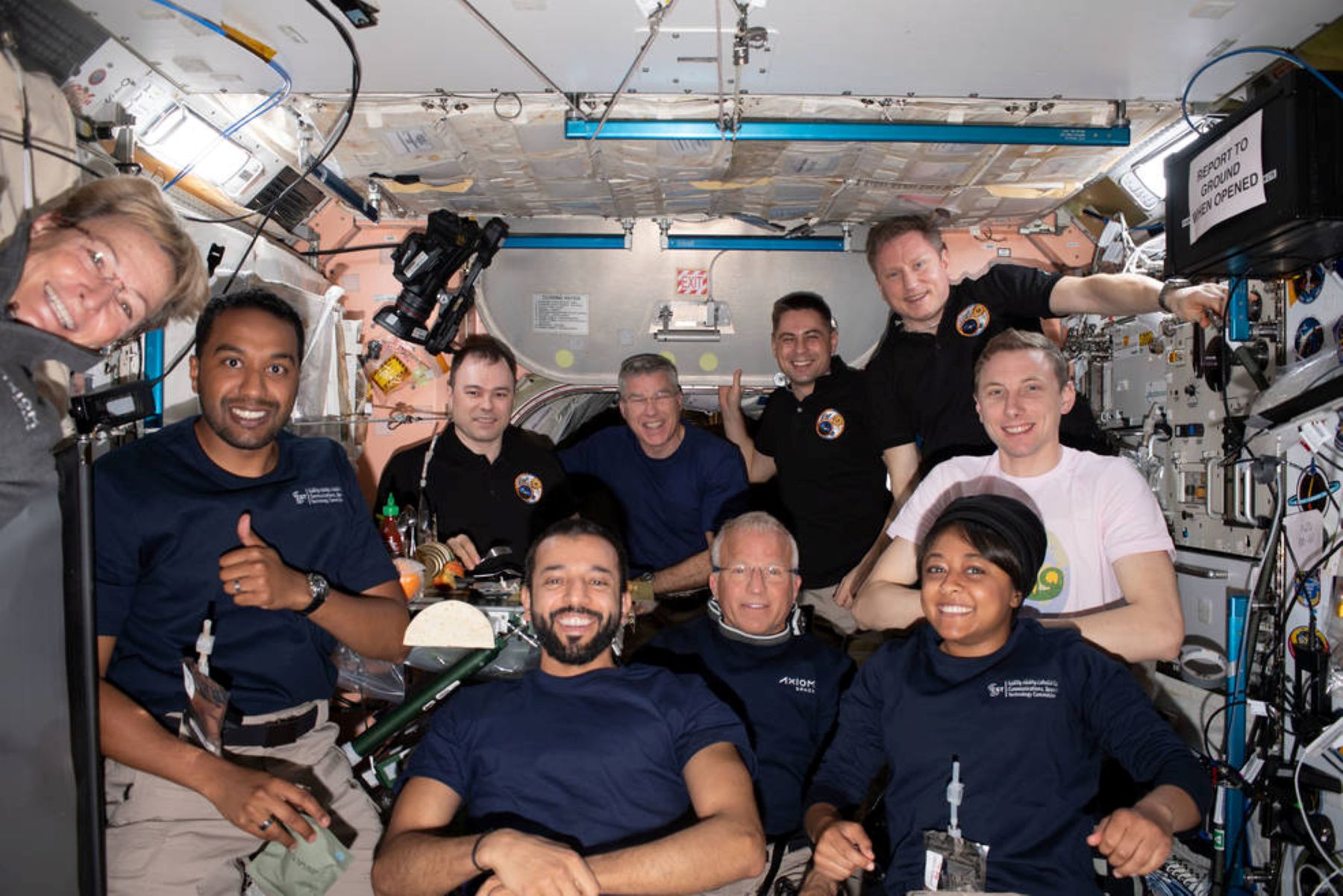NASA Sets Coverage for Axiom Mission 2 Departure from Space Station

NASA will provide live coverage of the undocking and departure of Axiom Mission 2 (Ax-2) private astronaut mission from the International Space Station before crew returns to Earth.
The four-member multinational astronaut crew is scheduled to undock no earlier than 11:05 a.m. EDT Tuesday, May 30, from the space-facing port of the station’s Harmony module in a SpaceX Dragon spacecraft to begin the journey home and splashdown off the coast of Florida.
NASA will begin live coverage of space station joint operations with Axiom Space and SpaceX, starting with hatch closure preparations at 9 a.m. Tuesday, May 30, on NASA Television, the NASA app, and the agency’s website.
Mission teams will monitor weather at the possible splashdown sites prior to undocking to ensure conditions are acceptable for a safe recovery of the spacecraft and Ax-2 astronauts.
Ax-2 Commander Peggy Whitson, Pilot John Shoffner, and Mission Specialists Ali Alqarni and Rayyanah Barnawi, both representing the Kingdom of Saudi Arabia, will complete approximately nine days in space at the conclusion of their mission. Their SpaceX Dragon will return to Earth with more than 300 pounds of cargo, including NASA hardware and data from over 20 different experiments.
NASA’s undocking and departure coverage for Ax-2 is as follows (all times Eastern and subject to change based on operations):
Tuesday, May 30
9 a.m. – NASA coverage begins for 9:10 a.m. hatch closure
10:45 a.m. – NASA coverage resumes for 11:05 a.m. undocking
NASA coverage will end approximately 30 minutes after undocking when space station joint operations end with the Axiom Space and SpaceX mission teams. Axiom Space will resume coverage of Dragon’s re-entry and splashdown on the company’s website.
Axiom Space will resume coverage of Dragon’s re-entry and splashdown on the company’s website.
The Ax-2 mission represents both a culmination of NASA’s efforts to foster a commercial market in low Earth orbit and the beginning of a new era of space exploration that enables more people to fly on more kinds of missions. This partnership is changing the arc of human spaceflight history by opening access to low Earth orbit and the International Space Station to more people, more science, and more commercial opportunities.





